![]() Das Album des Jahres
Das Album des Jahres
 weitere Highlights ...
weitere Highlights ...
| Pretenders (WEA/Real, Jan. 1980) |
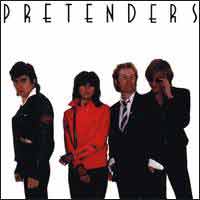 Chrissie
Hyndes Debüt war damals ein großer Erfolg. Tolle Songs, tolle
Gitarren. Chrissie
Hyndes Debüt war damals ein großer Erfolg. Tolle Songs, tolle
Gitarren. |
| Jack DeJohnette: "Special Edition" (ECM, Jan. 1980) |
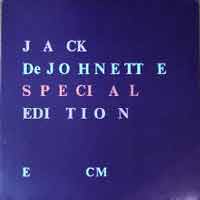
Dies ist eine für ECM-Verhältnisse relativ "fetzige" Platte. Zusammen mit dem Bassisten Peter Warren, den beiden Spitzensaxofonisten Arthur Blythe (Alt) und David Murray (Tenor) lieferte Schlagzeuger (und Pianist!) DeJohnette eine Hommage an die Saxofonisten Eric Dolphy und John Coltrane.
|
| Elvis Costello & The Attractions: "Get Happy" (Radarscope, Feb. 1980) |
|
|
| The Soft Boys: "A Can Of Bees" (Aura, Feb. 1980) |
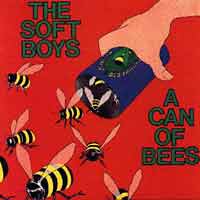
Meine erste Begegnung mit dem Werk des genialen Robyn Hitchcock verlief recht unspektakulär: ich habe dieses Album mit dem furchtbaren Cover für 2 Mark 90 bei Olschewski in Oberhausen aus der Grabbelkiste gezogen - vielleicht, weil ich den Namen des Sologitarristen Kimberley Rew von Katrina & The Waves (na ja...) und als Autor der Bangles-Single "Going Down to Liverpool" (Oh yeah!) kannte. Erst viel später kam ich über das Solowerk von Hitchcock auf den Geschmack - und musste feststellen, was für ein Schätzchen ich da schon seit längerem in meiner Plattensammlung hatte!
(2024-11-24) |
| Warren Zevon: "Bad Luck Streak At Dancing School" (Elektra/Asylum, Feb. 1980) |
 Mein erstes Warren Zevon-Album, irgendwann in den frühen 80ern bei
Lothar Koch in Wesel aus der "Sonderangebots"-Kiste geholt.
Ich kann mich noch gut erinnern, dass ich wegen des blöden Covers
vor dem Kauf zuerst gezögert hatte - es dann aber nie bereut hatte,
denn mir eröffnete sich eine neue Welt und peu á peu wurde
mein Abschnitt "Z" im Plattenregal immer breiter. Bei anderen
Leuten geschah das wohl eher wegen Z.Z. Top. Oder wegen Zappa.
Mein erstes Warren Zevon-Album, irgendwann in den frühen 80ern bei
Lothar Koch in Wesel aus der "Sonderangebots"-Kiste geholt.
Ich kann mich noch gut erinnern, dass ich wegen des blöden Covers
vor dem Kauf zuerst gezögert hatte - es dann aber nie bereut hatte,
denn mir eröffnete sich eine neue Welt und peu á peu wurde
mein Abschnitt "Z" im Plattenregal immer breiter. Bei anderen
Leuten geschah das wohl eher wegen Z.Z. Top. Oder wegen Zappa.
 Mehr ...
Mehr ...
|
| Emmylou Harris: "Roses In The Snow" (Warner, Mai 1980) |
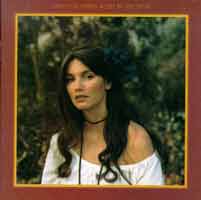 Und
schon wieder eine klasse Platte von meiner absoluten Favoritin. Dieses
mal etwas bluegrass-lastiger und akustischer ausgerichtet. Es überzeugt
die Gitarrenarbeit von Albert Lee und Tony Rice. Und
schon wieder eine klasse Platte von meiner absoluten Favoritin. Dieses
mal etwas bluegrass-lastiger und akustischer ausgerichtet. Es überzeugt
die Gitarrenarbeit von Albert Lee und Tony Rice. |
| Jackson Browne: "Hold Out" (Elektra/Asylum, Juni 1980) |
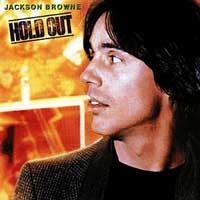 Da wird mir mein Bandkollege Müller
wohl widersprechen, aber das ist für lange Jahre das letzte richtig
gute Jackson Browne-Album. Vielleicht, weil David Lindley zum letzten
mal zur Stammbesetzung gehört? Auf jeden Fall haben die beiden zusammen
einen der schönsten JB-Songs verfasst: "Call It A Loan"!
Da wird mir mein Bandkollege Müller
wohl widersprechen, aber das ist für lange Jahre das letzte richtig
gute Jackson Browne-Album. Vielleicht, weil David Lindley zum letzten
mal zur Stammbesetzung gehört? Auf jeden Fall haben die beiden zusammen
einen der schönsten JB-Songs verfasst: "Call It A Loan"!
 Mehr ...
Mehr ...
|
| Nine Below Zero: "Live At The Marquee" (A&M, Juni 1980) |
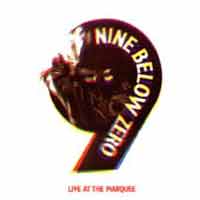 Was
für ein ungewöhnliches Debütalbum bei einem großen Plattenlabel:
ein Livealbum aus dem kleinen, aber berühmten Londoner "Marquee
Club". Wenn man diese Platte dann hört, weiß man warum: Nine
Below Zero sind live mit ihrer hochenergetischen Mischung aus Blues und
R&B einfach unglaublich. Selten habe ich eine bessere Bluesband gehört.
Die Rhythmusgruppe ist absolut auf dem Punkt. Sänger/Gitarrist Dennis
Greaves ist auch sehr stark, aber der Harpspieler Mark Feltham
ist einfach unglaublich! Was
für ein ungewöhnliches Debütalbum bei einem großen Plattenlabel:
ein Livealbum aus dem kleinen, aber berühmten Londoner "Marquee
Club". Wenn man diese Platte dann hört, weiß man warum: Nine
Below Zero sind live mit ihrer hochenergetischen Mischung aus Blues und
R&B einfach unglaublich. Selten habe ich eine bessere Bluesband gehört.
Die Rhythmusgruppe ist absolut auf dem Punkt. Sänger/Gitarrist Dennis
Greaves ist auch sehr stark, aber der Harpspieler Mark Feltham
ist einfach unglaublich! |
| The Soft Boys: "Underwater Moonlight" (Armageddon, Juli 1980) |
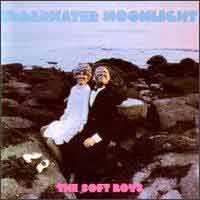 Dieses
Album gilt als das Meisterwerk der Band um den Sänger, Songschreiber
und Gitarristen Robyn Hitchcock, den Drummer Morris Windsor,
den Bassisten Matthew Seligman und den Gitarristen Kimberley
Rew. Mitten in der New-Wave-Zeit konnte die Musiker mit ihrem anspruchsvollen,
im weitesten Sinne an Dylan und die Byrds erinnernden Psychedelic-Rock
leider nicht beim großen Publikum landen, sondern waren eher Lieblinge
der Kritiker und "Musican's Musican" (R.E.M. zählen
die Band zu ihren großen Vorbildern). Hitchcock machte in den 80ern
und 90ern eine Reihe von mehr oder weniger erfolgreichen Soloalben. Rew
hatte später als einziger durch sein Mitwirken bei Katrina &
The Waves und seinem für die Bangles geschriebenen Song
"Going Down To Liverpool" doch noch einen größeren
Publikumserfolg. Dieses
Album gilt als das Meisterwerk der Band um den Sänger, Songschreiber
und Gitarristen Robyn Hitchcock, den Drummer Morris Windsor,
den Bassisten Matthew Seligman und den Gitarristen Kimberley
Rew. Mitten in der New-Wave-Zeit konnte die Musiker mit ihrem anspruchsvollen,
im weitesten Sinne an Dylan und die Byrds erinnernden Psychedelic-Rock
leider nicht beim großen Publikum landen, sondern waren eher Lieblinge
der Kritiker und "Musican's Musican" (R.E.M. zählen
die Band zu ihren großen Vorbildern). Hitchcock machte in den 80ern
und 90ern eine Reihe von mehr oder weniger erfolgreichen Soloalben. Rew
hatte später als einziger durch sein Mitwirken bei Katrina &
The Waves und seinem für die Bangles geschriebenen Song
"Going Down To Liverpool" doch noch einen größeren
Publikumserfolg. |
| Echo & The Bunnymen: "Crocodiles" (Korova, Juli 1980) |
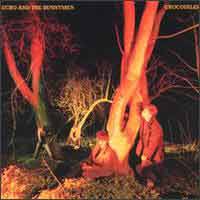 Die
Band ist eine der wenigen Truppen aus der "Grufty"-Ecke, die
ich klasse finde. Eigentlich ist das Etikett "Grufty"/"Düsterrock"
auch eher unpassend. Mich erinnern die Jungs viel eher an die guten alten
Doors. Die
Band ist eine der wenigen Truppen aus der "Grufty"-Ecke, die
ich klasse finde. Eigentlich ist das Etikett "Grufty"/"Düsterrock"
auch eher unpassend. Mich erinnern die Jungs viel eher an die guten alten
Doors. |
| Paul Simon: "One Trick Pony" (Warner, Aug. 1980) |
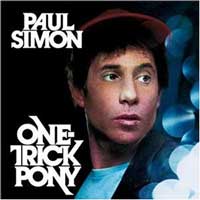 Jetzt
begebe ich mich ein wenig auf Glatteis: eigentlich sollte ich Paul
Simon nicht gut finden ("den kennt ja jeder - wie langweilig!").
Meistens ist er mir auch tatsächlich ziemlich egal. Aber wenn ich
ihn dann doch mal mag, dann mit einem eher unbekannten, unpopulären
Album. "One Trick Pony" ist der Soundtrack zu einem Kinofilm,
in dem Paul Simon - überraschung! - einen Sänger und Songschreiber
spielt. Der Film lief vor Ewigkeiten mal im ZDF, woran ich mich aber kaum
noch erinnern kann. Nur, dass es da tolle Konzertaufnahmen gab, bei denen
Richard Tee am E-Piano, Steve Gadd am Schlagzeug, Eric
Gale an der Gitarre und Tony Levin ab Bass glänzen. Vor
allem diesen Fender-Rhodes-Sound mag ich so sehr! Der Film hat damals
wohl überall schlechte Kritiken bekommen, aber ich hab eine gute,
wenn auch dürftige, Erinnerung dran! Jetzt
begebe ich mich ein wenig auf Glatteis: eigentlich sollte ich Paul
Simon nicht gut finden ("den kennt ja jeder - wie langweilig!").
Meistens ist er mir auch tatsächlich ziemlich egal. Aber wenn ich
ihn dann doch mal mag, dann mit einem eher unbekannten, unpopulären
Album. "One Trick Pony" ist der Soundtrack zu einem Kinofilm,
in dem Paul Simon - überraschung! - einen Sänger und Songschreiber
spielt. Der Film lief vor Ewigkeiten mal im ZDF, woran ich mich aber kaum
noch erinnern kann. Nur, dass es da tolle Konzertaufnahmen gab, bei denen
Richard Tee am E-Piano, Steve Gadd am Schlagzeug, Eric
Gale an der Gitarre und Tony Levin ab Bass glänzen. Vor
allem diesen Fender-Rhodes-Sound mag ich so sehr! Der Film hat damals
wohl überall schlechte Kritiken bekommen, aber ich hab eine gute,
wenn auch dürftige, Erinnerung dran!(27.02.2006) |
| Captain Beefheart & The Magic Band: "Doc At The Radar Station" (Virgin, Aug. 1980) |
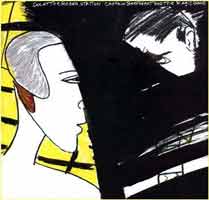 Nach
zwei enttäuschenden Versuchen mit "normaler Rockmusik"
(na ja: "normal" zumindest für die Verhältnisse des
Captains) plötzlich doch wieder ein echtes Hammeralben mit allen
alten Stärken: irrer Gesang, verrückte Texte, schräge Rhythmen,
geniale Slidegitarren - diesmal unterstützt vom Zappa-Posaunisten
Bruce Fowler. An den Gitarren Jeff
Morris Tepper und der erst später bekannt werdende Gary Lucas. Nach
zwei enttäuschenden Versuchen mit "normaler Rockmusik"
(na ja: "normal" zumindest für die Verhältnisse des
Captains) plötzlich doch wieder ein echtes Hammeralben mit allen
alten Stärken: irrer Gesang, verrückte Texte, schräge Rhythmen,
geniale Slidegitarren - diesmal unterstützt vom Zappa-Posaunisten
Bruce Fowler. An den Gitarren Jeff
Morris Tepper und der erst später bekannt werdende Gary Lucas. |
| Van Morrison: "Common One" (Mercury, Sept. 1980) |
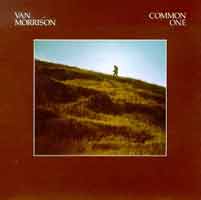 Mit
diesem Album habe ich Van Morrison eigentlich erst richtig für mich
entdeckt. Die Band vom genialen, aber an mir noch vorüber gegangenen
Vorgängeralbum "Into The
Music" blieb weitestgehend zusammen und kam dieses mal ganz ohne
Gaststars aus. Von den Songs finde ich vor allem das viertelstündige
"Summertime In England" beeindruckend. Es lässt die alten
Glanztaten von "Madame George" (auf "Astral
Weeks" von 1968) und "Listen To The Lion" (auf dem
unterschätzen Album "Saint
Dominic's Preview" von 1972) wieder in Erinnerung kommen! Mit
diesem Album habe ich Van Morrison eigentlich erst richtig für mich
entdeckt. Die Band vom genialen, aber an mir noch vorüber gegangenen
Vorgängeralbum "Into The
Music" blieb weitestgehend zusammen und kam dieses mal ganz ohne
Gaststars aus. Von den Songs finde ich vor allem das viertelstündige
"Summertime In England" beeindruckend. Es lässt die alten
Glanztaten von "Madame George" (auf "Astral
Weeks" von 1968) und "Listen To The Lion" (auf dem
unterschätzen Album "Saint
Dominic's Preview" von 1972) wieder in Erinnerung kommen! |
| Ry Cooder: "Borderline" (Warner, Okt. 1980) |
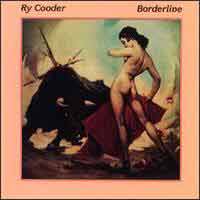 Der
Nachfolger zu "Bop Till You Drop"
kam damals bei mir erst nicht so spektakulär rüber, hatte dann
aber die längere Halbwertszeit, was nicht zuletzt am vorzüglichen
Songmaterial (z.B. "6345789" von Eddie Floyd) und der guten
Band liegt: klasse Rhythmusgruppe (Jim Keltner am Schlagzeug, Perkussionist
Ras Baboo und Bassist Tim Drummond), toller Chor (John
Hiatt, Bobby King und Willie Greene) und natürlich
Cooders unnachahmliches Slidespiel. Der
Nachfolger zu "Bop Till You Drop"
kam damals bei mir erst nicht so spektakulär rüber, hatte dann
aber die längere Halbwertszeit, was nicht zuletzt am vorzüglichen
Songmaterial (z.B. "6345789" von Eddie Floyd) und der guten
Band liegt: klasse Rhythmusgruppe (Jim Keltner am Schlagzeug, Perkussionist
Ras Baboo und Bassist Tim Drummond), toller Chor (John
Hiatt, Bobby King und Willie Greene) und natürlich
Cooders unnachahmliches Slidespiel. |
| John Hiatt: "Two Bit Monsters" (MCA, Okt. 1980) |
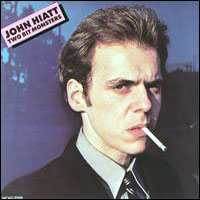 Meine erste Hiatt-Platte, wie so viele andere damals aus der Grabbelkiste
gezogen. Aufgefallen war er mir durch seine Mitarbeit bei Ry
Cooder und durch gelegentliche Coverversionen seiner Lieder. Auf diesem
Album z.B. "Pink Bedroom", das ich über Albert Lee
kennen lernte. Von Rosanne Cash soll es auch eine Version geben,
die ich aber noch nicht gehört habe. Wie alle frühen Hiatt-Alben
war das natürlich ein Flop - auch bei mir war der Mann damals eher
einer von vielen, die ich gehört habe. Erst "Bring
The Family" von 1987 war dann für mich und viele andere
Leute (zumindest der künstlerische) Durchbruch.
Meine erste Hiatt-Platte, wie so viele andere damals aus der Grabbelkiste
gezogen. Aufgefallen war er mir durch seine Mitarbeit bei Ry
Cooder und durch gelegentliche Coverversionen seiner Lieder. Auf diesem
Album z.B. "Pink Bedroom", das ich über Albert Lee
kennen lernte. Von Rosanne Cash soll es auch eine Version geben,
die ich aber noch nicht gehört habe. Wie alle frühen Hiatt-Alben
war das natürlich ein Flop - auch bei mir war der Mann damals eher
einer von vielen, die ich gehört habe. Erst "Bring
The Family" von 1987 war dann für mich und viele andere
Leute (zumindest der künstlerische) Durchbruch.
 Mehr ...
Mehr ...
|
| Japan: "Gentlemen Take Polaroids" (Virgin, Okt. 1980) |
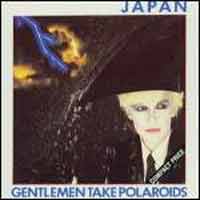 Über die Band Japan hatte ich zwei Jahre zuvor in der Bravo von meiner kleinen
Schwester zum ersten mal was gelesen und sie danach als gestylte Teenieband
ignoriert. Damit lag ich natürlich total daneben, denn die Band um
die Brüder David Sylvian (v,g) und Steve Jansen (dr),
den Keyboarder Richard Barbieri und den Bassisten Mick Karn
produzierte damals bereits eine tolle und total eigenständige Musik,
die dann später in den Soloalben von Sylvian und Karn (Dali's Car)
und den Duoplatten von Jansen/Barbieri (Dolphin Twins) konsequent weiterentwickelt
wurde.
Über die Band Japan hatte ich zwei Jahre zuvor in der Bravo von meiner kleinen
Schwester zum ersten mal was gelesen und sie danach als gestylte Teenieband
ignoriert. Damit lag ich natürlich total daneben, denn die Band um
die Brüder David Sylvian (v,g) und Steve Jansen (dr),
den Keyboarder Richard Barbieri und den Bassisten Mick Karn
produzierte damals bereits eine tolle und total eigenständige Musik,
die dann später in den Soloalben von Sylvian und Karn (Dali's Car)
und den Duoplatten von Jansen/Barbieri (Dolphin Twins) konsequent weiterentwickelt
wurde. |
| John Martyn: "Grace & Danger" (Okt. 1980) |
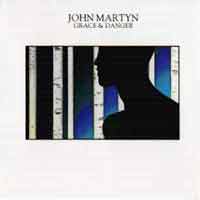 Eine der ganz wenigen Platten, auf denen Phil Collins trommelt
und singt und die ich trotzdem sehr mag! Das ist natürlich der Verdienst
des schottischen Sängers, Gitarristen, Songschreibers und Querdenkers
John Martyn. Eine Werk zwischen Folk, Funk, Reggae und Mainstream.
"Sweet Little Mystery" war damals eines meiner Lieblingslieder.
Eine der ganz wenigen Platten, auf denen Phil Collins trommelt
und singt und die ich trotzdem sehr mag! Das ist natürlich der Verdienst
des schottischen Sängers, Gitarristen, Songschreibers und Querdenkers
John Martyn. Eine Werk zwischen Folk, Funk, Reggae und Mainstream.
"Sweet Little Mystery" war damals eines meiner Lieblingslieder.
 Mehr ...
Mehr ...
|
| Rockpile: "Seconds Of Pleasure" (F-Beat, Okt. 1980) |
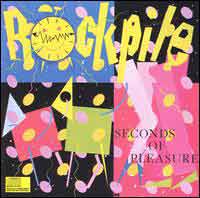 Theoretisch ist dies das Debüt der hochkarätigen Band um Dave
Edmunds, Nick Lowe (Ex-Brinsley
Schwarz), Billy Bremner und Terry Williams (Ex-Man,
später bei den Dire Straits). Da Edmunds und Lowe aber in Plattenverträgen
festsaßen, die keine gemeinsame Veröffentlichung zuließen, hörte
man die Band auf Tonträger zuerst nur auf den Soloalben von Edmunds
("Tracks On Wax 4"), Lowe
und anderen Künstlern (u. a. das starke Album "Juppanese"
von Mickey Jupp).
Theoretisch ist dies das Debüt der hochkarätigen Band um Dave
Edmunds, Nick Lowe (Ex-Brinsley
Schwarz), Billy Bremner und Terry Williams (Ex-Man,
später bei den Dire Straits). Da Edmunds und Lowe aber in Plattenverträgen
festsaßen, die keine gemeinsame Veröffentlichung zuließen, hörte
man die Band auf Tonträger zuerst nur auf den Soloalben von Edmunds
("Tracks On Wax 4"), Lowe
und anderen Künstlern (u. a. das starke Album "Juppanese"
von Mickey Jupp).
 Mehr ...
Mehr ...
|
| XTC: "The Black Sea" (Virgin, Okt. 1980) |
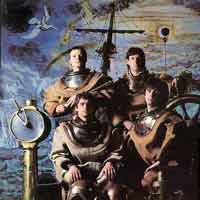 Eines der vielen tollen XTC-Alben von Andy Partridge und seinen
Mitstreitern aus den frühen 80ern!
Eines der vielen tollen XTC-Alben von Andy Partridge und seinen
Mitstreitern aus den frühen 80ern! |
| Tom Waits: "Heartattack And Wine" (Elektra/Asylum, Okt. 1980) |
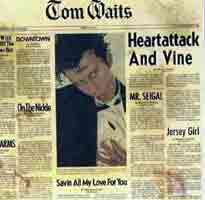 Das
letzte Album vor dem Quantensprung "Swordfishtrombones"
war auch schon ein sehr schönes! Mit dem klasse Titelsong und "Jersey
Girl", das später von Bruce Springsteen "vereinnahmt"
wurde. Das
letzte Album vor dem Quantensprung "Swordfishtrombones"
war auch schon ein sehr schönes! Mit dem klasse Titelsong und "Jersey
Girl", das später von Bruce Springsteen "vereinnahmt"
wurde. |
| Fehlfarben: "Monarchie und Alltag" (EMI/Elektrola, Nov. 1980) |
|
Keine Atempause |
| Pat Metheny: "80/81" (ECM, Dez. 1980) |
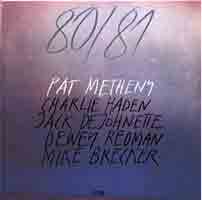
Doppelbödige Titel müssen nicht unbedingt tiefgründig sein. "80/81" bezieht sich natürlich auf die Bestellnummern und Aufnahme- und Veröffentlichungszeitpunkt der Platte. Ein wunderbares Jazz-Doppelalbum (!) des ehemaligen Gitarrenwunderkinds, zusammen mit den Jazzlegenden Charlie Haden (Bass), Jack DeJohnette (drums) und den Saxofonisten Dewey Redman und Michael Brecker. Gefällt mir sehr viel besser als Methenys späte Aufnahmen mit der Pat Metheny Group ("American Garage", "Offramp" und danach).
 Mehr ...
Mehr ...
|
| Any Trouble: "Where Are All The Nice Girls" (Stiff, 1980) |
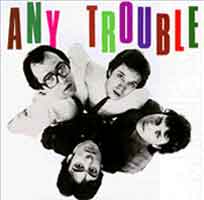 Fünf
Jahre früher am Start wären Any Trouble sicherlich die Helden
des Pubrock geworden. Im Jahre 1980 und umgeben von Punkrockern und New-Wave-Poppern
hatten die Jungs um den Sänger/Gitarristen/Songschreiber Clive
Gregson (das ist der mit Kassengestellbrille und dem zarten Ansatz
einer Glatze) eigentlich keine Chance. Trotzdem war das ein tolles Debüt
mit tollen Songs. Fünf
Jahre früher am Start wären Any Trouble sicherlich die Helden
des Pubrock geworden. Im Jahre 1980 und umgeben von Punkrockern und New-Wave-Poppern
hatten die Jungs um den Sänger/Gitarristen/Songschreiber Clive
Gregson (das ist der mit Kassengestellbrille und dem zarten Ansatz
einer Glatze) eigentlich keine Chance. Trotzdem war das ein tolles Debüt
mit tollen Songs. |
| The Feelies: "Crazy Rhythms" (Stiff, 1980) |
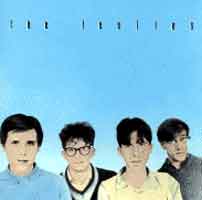 Die
Feelies waren schon eine merkwürdige Band. Das Debüt der Amerikaner
erschien auf dem englischen Kultlabel Stiff und erregte mit seiner Mischung
aus Kinks, Beatles, Velvet Underground und Television auf Speed eine große
Aufmerksamkeit. Danach herrschte für 5 Jahre Funkstille und es erschienen
drei weitere Klassealben mit anderer Rhythmusgruppe. Dominiert wurde die
Band von den beiden Sängern/Gitarristen Bill Million und Glenn
Mercer. Am Schlagzeug saß Anton Fier, der später
ein Star der New Yorker-Avantgarderock-Szene wurde (Lounge Lizards, Golden
Palominos) und heute angeblich in der Band der David Letterman-Show trommelt.
(in der Harald Schmidt-Show bläst Mel Collins das Saxofon!).
Neben Songs von Million/Mercer gab es auch zwei Cover von prominenten
Vorbildern: "Everybody's Got Something To Hide" (Lennon/McCartney)
und "Paint It Black" (Jagger/Richards), letzteres allerdings
nur auf dem Re-Release von 1990 auf A&M. Die
Feelies waren schon eine merkwürdige Band. Das Debüt der Amerikaner
erschien auf dem englischen Kultlabel Stiff und erregte mit seiner Mischung
aus Kinks, Beatles, Velvet Underground und Television auf Speed eine große
Aufmerksamkeit. Danach herrschte für 5 Jahre Funkstille und es erschienen
drei weitere Klassealben mit anderer Rhythmusgruppe. Dominiert wurde die
Band von den beiden Sängern/Gitarristen Bill Million und Glenn
Mercer. Am Schlagzeug saß Anton Fier, der später
ein Star der New Yorker-Avantgarderock-Szene wurde (Lounge Lizards, Golden
Palominos) und heute angeblich in der Band der David Letterman-Show trommelt.
(in der Harald Schmidt-Show bläst Mel Collins das Saxofon!).
Neben Songs von Million/Mercer gab es auch zwei Cover von prominenten
Vorbildern: "Everybody's Got Something To Hide" (Lennon/McCartney)
und "Paint It Black" (Jagger/Richards), letzteres allerdings
nur auf dem Re-Release von 1990 auf A&M. |
| David Grisman: "Quintet '80" (Warner, 1980) |
|
|
| Charlie Haden, Jan Garbarek & Egberto Gismonti: "Magico" (ECM, 1980) |
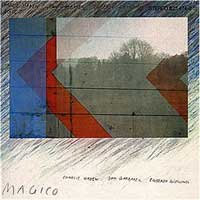
Diese Platte scheint nach einem auch bei ECM sehr beliebten Jazzrezept gekocht zu sein: bringe drei Könner auf ihrem Instrument zusammen und lasse in dieser neuen Kombination etwas "Neues" entstehen. Vielleicht nicht so innovativ wie
Codona, aber auf jeden Fall etwas qualitativ Hochwertiges, sodass zumindest die jeweiligen Fans interessiert sind!  Mehr ...
Mehr ...
|
| Interview: "Snakes And Lovers" (Virgin, 1980) |
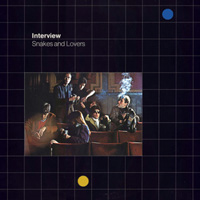 Gefunden in der Grabbelkiste!
Gefunden in der Grabbelkiste!
(15.04.2017)
 Mehr ...
Mehr ...
|
| "The Nighthawks" (Mercury, 1980) |
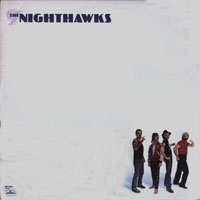 Ich besitze leider nur eine Kassettenkopie von diesem raren Meisterwerk
der "Bluesband" um den Harpspieler Mark Wenner und
den Gitarristen Jim Thackery, ihrem einzigen Album bei einer
großen Plattenfirma. Mit einer genialen Version des Bobby
Bland-Klassikers "I Wouldn't Treat A Dog (The Way You Treated Me)"!
Ich besitze leider nur eine Kassettenkopie von diesem raren Meisterwerk
der "Bluesband" um den Harpspieler Mark Wenner und
den Gitarristen Jim Thackery, ihrem einzigen Album bei einer
großen Plattenfirma. Mit einer genialen Version des Bobby
Bland-Klassikers "I Wouldn't Treat A Dog (The Way You Treated Me)"!
 Mehr ...
Mehr ...
|
| Terry & The Pirates: "The Doubtful Handshake" (Line, 1980) |
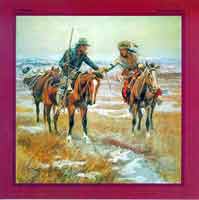 Terry Dolan kam als Folksänger zu Beginn der 70er nach San Francisco
und formte dort diese Rockband, in der viele Stars der Bay Area-Szene
mitmachten. Auf Basis von Terry's Gesang und Rhythmusgitarre gibt es wunderbar
entspannten Westcoastrock, wie man ihn lange nicht mehr gehört hatte.
Dafür sorgen die Gitarristen John Cipollina (Quicksilver Messenger Service,
Copperhead) und Greg Douglass (Steve Miller Band),
der Bassist David Hayes (Van Morrison,
Jesse Colin Young), der Drummer Jeff Myer
(Jesse Colin Young) und als Gast-Keyboarder Pete Sears
(Rod Stewart, Jefferson Starship, Hot Tuna). Neben Songs von Dolan, Douglass und Cipollina gibt's auch
zwei schöne Coverversionen: "Ain't Living Long Like This" (Rodney Crowell) und
"I Put A Spell On You" (Screaming Jay Hawkins, bekannt auch von CCR).
Terry Dolan kam als Folksänger zu Beginn der 70er nach San Francisco
und formte dort diese Rockband, in der viele Stars der Bay Area-Szene
mitmachten. Auf Basis von Terry's Gesang und Rhythmusgitarre gibt es wunderbar
entspannten Westcoastrock, wie man ihn lange nicht mehr gehört hatte.
Dafür sorgen die Gitarristen John Cipollina (Quicksilver Messenger Service,
Copperhead) und Greg Douglass (Steve Miller Band),
der Bassist David Hayes (Van Morrison,
Jesse Colin Young), der Drummer Jeff Myer
(Jesse Colin Young) und als Gast-Keyboarder Pete Sears
(Rod Stewart, Jefferson Starship, Hot Tuna). Neben Songs von Dolan, Douglass und Cipollina gibt's auch
zwei schöne Coverversionen: "Ain't Living Long Like This" (Rodney Crowell) und
"I Put A Spell On You" (Screaming Jay Hawkins, bekannt auch von CCR).
|
| Young Marble Giants: "Colossal Youth" (Rough Trade, 1980) |
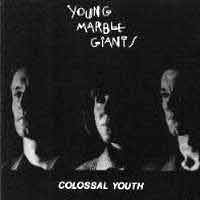 Das
Debüt der Sängerin Alison Statton und den Brüdern
Phil Moxham (bg) und Stuart Moxham (g,keyb) blieb auch die
einzige Platte der Band. Diese sehr eigenwillige und spröde Musik
brachte der Band damals Kultstatus ein. Das
Debüt der Sängerin Alison Statton und den Brüdern
Phil Moxham (bg) und Stuart Moxham (g,keyb) blieb auch die
einzige Platte der Band. Diese sehr eigenwillige und spröde Musik
brachte der Band damals Kultstatus ein. |
| "The London R&B Sessions" (Albion, 1980) |
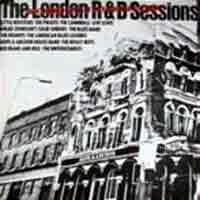 Das
"Hope & Anchor", eine Londoner Vorortkneipe, gilt als eine
der Keimzellen des Pubrock, brachte aber auch Blues und Punkrock, nachzuhören
auf dem exquisiten Sampler "Hope
& Anchor Front Row Festival", ebenfalls bei Albion erscheinen.
Im Dezember 1979 trafen sich dann ein paar wirklich klasse Acts, die sich
weitestgehend unter dem Etikett "R&B" zusammenfassen lassen:
Wilko Johnson (Ex-Dr. Feelgood),
The Pirates, The Bluesband (die vom Rockpalast), The
Count Bishops, aber auch die Hope&Anchor House Band, in
der die beiden Ex-Man Deke
Leonard und Martin Ace zusammen mit dem britischen Pedalsteel-Virtuosen
B.J. Cole spielen. Das
"Hope & Anchor", eine Londoner Vorortkneipe, gilt als eine
der Keimzellen des Pubrock, brachte aber auch Blues und Punkrock, nachzuhören
auf dem exquisiten Sampler "Hope
& Anchor Front Row Festival", ebenfalls bei Albion erscheinen.
Im Dezember 1979 trafen sich dann ein paar wirklich klasse Acts, die sich
weitestgehend unter dem Etikett "R&B" zusammenfassen lassen:
Wilko Johnson (Ex-Dr. Feelgood),
The Pirates, The Bluesband (die vom Rockpalast), The
Count Bishops, aber auch die Hope&Anchor House Band, in
der die beiden Ex-Man Deke
Leonard und Martin Ace zusammen mit dem britischen Pedalsteel-Virtuosen
B.J. Cole spielen.
|
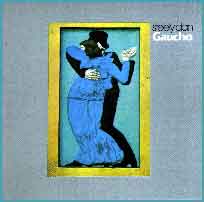 Der Schwanengesang des Duos Becker/Fagen vor einer 15jährigen
Pause. Eines meiner absoluten Lieblingsalben mit Wahnsinnssongs, den allerbesten
Instrumentalisten (u. a. Gitarrist Steve Khan, Tenorsaxofonist
Tom Scott, Keyboarder Don Grolnick, Gitarrist Larry Carlton,
Keyboarder Joe Sample von den Crusaders, den Brecker Brothers,
Schlagzeuger Steve Gadd, Altsaxofonist David Sanborn, Trommler
Bernard Purdie und Bassist Anthony Jackson - nur Mark
Knopflers Gitarrensolo nervt mich etwas) und einem gigantischen Sound.
Vor allem beim zentralen Instrument aller sieben Nummern, dem berühmten
Fender Rhodes E-Piano kommt das zum Tragen. Perfekt, aber überhaupt
nicht steril (wie bei den meisten anderen "perfekten" Produktionen).
Der Schwanengesang des Duos Becker/Fagen vor einer 15jährigen
Pause. Eines meiner absoluten Lieblingsalben mit Wahnsinnssongs, den allerbesten
Instrumentalisten (u. a. Gitarrist Steve Khan, Tenorsaxofonist
Tom Scott, Keyboarder Don Grolnick, Gitarrist Larry Carlton,
Keyboarder Joe Sample von den Crusaders, den Brecker Brothers,
Schlagzeuger Steve Gadd, Altsaxofonist David Sanborn, Trommler
Bernard Purdie und Bassist Anthony Jackson - nur Mark
Knopflers Gitarrensolo nervt mich etwas) und einem gigantischen Sound.
Vor allem beim zentralen Instrument aller sieben Nummern, dem berühmten
Fender Rhodes E-Piano kommt das zum Tragen. Perfekt, aber überhaupt
nicht steril (wie bei den meisten anderen "perfekten" Produktionen).

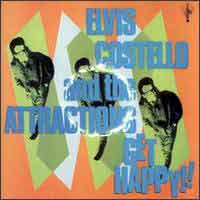 "Elvis wanted a change of direction, so he buys a load of old soul records
and asks The Attractions to play like Booker T.& The MGs. The pressure
of constant touring and the infamous Columbus, Ohio incident was starting
to show, and while recording in Holland they got through at least 5
engineers. At one point Steve Nieve exclaimed, "I can't play this
monkey music anymore, it's an insult to jazz!", and Bruce Thomas
was starting to see beatles on the floor. Despite album sales being
only half of what
"Elvis wanted a change of direction, so he buys a load of old soul records
and asks The Attractions to play like Booker T.& The MGs. The pressure
of constant touring and the infamous Columbus, Ohio incident was starting
to show, and while recording in Holland they got through at least 5
engineers. At one point Steve Nieve exclaimed, "I can't play this
monkey music anymore, it's an insult to jazz!", and Bruce Thomas
was starting to see beatles on the floor. Despite album sales being
only half of what 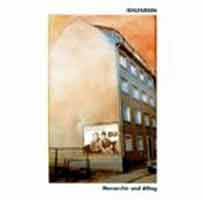 Eines
der wenigen richtig guten Alben der "Neuen Deutschen Welle",
obwohl: die Düsseldorfer Fehlfarben mit NDW in Verbindung zu bringen
ist eigentlich Blasphemie. Mit dem absoluten "Hit" der damaligen
Zeit "Ein Jahr":
Eines
der wenigen richtig guten Alben der "Neuen Deutschen Welle",
obwohl: die Düsseldorfer Fehlfarben mit NDW in Verbindung zu bringen
ist eigentlich Blasphemie. Mit dem absoluten "Hit" der damaligen
Zeit "Ein Jahr":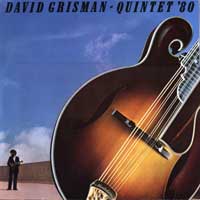 Dies
ist bereits das zweite Album, welches mir vom Meister der 8 dünnen
Saiten zwischen die Finger gekommen ist. Da das
Dies
ist bereits das zweite Album, welches mir vom Meister der 8 dünnen
Saiten zwischen die Finger gekommen ist. Da das